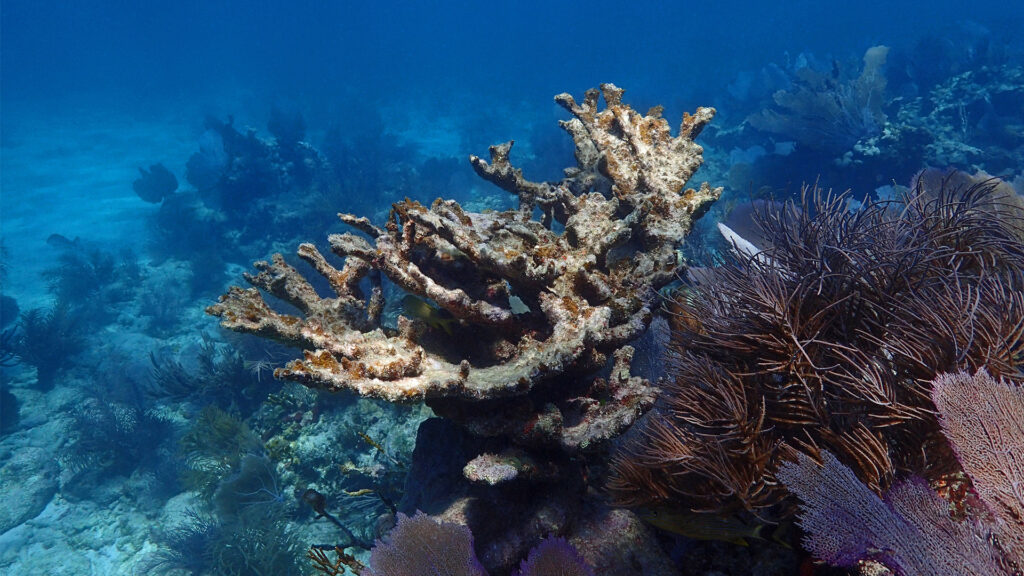A roundup of news items related to climate change and other environmental issues in Florida:
A desperate push to save Florida’s coral: Get it out of the sea | New York Times

When Bailey Thomasson first spotted the coral, she felt a jolt of relief. She was diving for samples off the Florida Keys, and the thicket of elkhorn coral below looked brown, not the stark white that would indicate bleaching from the record-breaking sea temperatures in the area. But as she swam closer, she realized the situation was far worse than she’d considered possible.
“The coral didn’t even have a chance to bleach, it just died,” said Ms. Thomasson, who works for the Coral Restoration Foundation, a nonprofit group based in the Keys. The brown color was not healthy coral but dead tissue sloughing off the skeleton, almost as if it had melted.
“It just felt like, ‘Oh my God, we’re in the apocalypse,’” she said. “What’s happening?”
Researchers, including in Jacksonville, warn of perilous salinity changes in warming oceans | Florida Times-Union
Cliff Ross notes that in stories and studies on human-caused climate change, most of the emphasis is on a rapidly warming world that is expected to only get hotter and hotter.
That’s fair enough, he says — and that’s taken on increased urgency as intense heat waves hammer various parts of the globe this summer, a phenomenon scientists are linking to climate change.
But Ross, a marine biologist who’s head of the biology department at the University of North Florida and part of an international research team, wants to bring attention to another effect of a hotter Earth — changing salinity levels in the world’s oceans, which could themselves bring about big changes across the planet.
A state-funded rural land program draws in applicants | News Service of Florida
More than 180 landowners have applied to a state-funded program — a target of Gov. Ron DeSantis’ veto pen — designed to keep swaths of rural property from commercial and residential development.
The state Department of Agriculture and Consumer Services announced Friday it will quickly start to rank the proposals that collectively seek to cover more than 200,000 acres through the Rural and Family Lands Protection Program. The deadline to apply for the program was Thursday.
The program puts land into conservation easements, allowing landowners to continue farming and cattle operations in exchange for not developing the property.
If you have any news items of note that you think we should include in our next roundup, please email The Invading Sea Editor Nathan Crabbe at ncrabbe@fau.edu. Sign up for The Invading Sea newsletter by visiting here.



